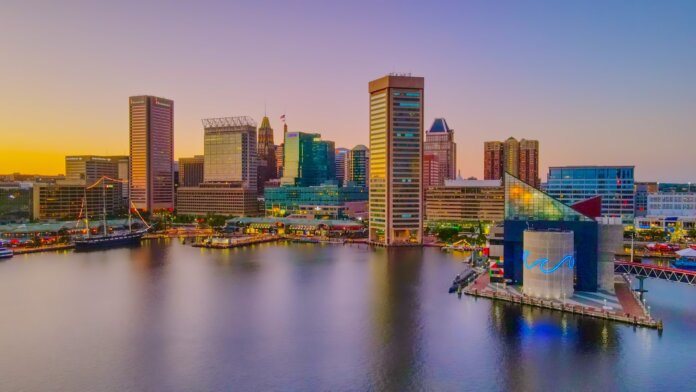
Baltimore Mayor Brandon M. Scott has signed City Council Bill 21-0159 into law, which will help facilitate a transition to zero-emissions vehicles for the Maryland city’s administrative fleet.
Under the law, by 2030, all procurements for Baltimore’s administrative fleet — comprising light-duty, standard-occupancy vehicles, including sedans, small pickups and SUVs — will be required to be zero-emission vehicles, most likely all-electric.
As the city prepares to release its Climate Action Plan Update and following the 2022 announcement by Scott for 100% carbon neutrality by 2045, this action by city government and the Department of General Services helps lead the way toward achieving the city’s climate goals.
The most recent citywide greenhouse gas analysis shows transportation emissions are 23% of the citywide greenhouse gas footprint. These light-duty electric vehicles are already readily available, and reports by peer municipalities indicate there are significant long-term cost savings in having an all-electric administrative fleet due to lower fuel and operations costs.
“My administration knows the critical importance of ensuring our city is able to confront the climate crisis head-on and do everything in our power to ensure Baltimore is leading the way in sustainability and climate resilience,” says Scott. “Doing so requires us to look at the steps city government can take to change the way it operates, and work to modernize our systems to be more climate-conscious”
Since the 2010s, Baltimore has a history of piloting EVs throughout fleet operations, including as part of the Maryland Energy Administration’s Smart Energy Communities Program. Recently, a Ford Mach-E was delivered for the City Comptroller’s Office, an all-electric van and Grow Center were delivered to DPW delivered this past summer, and 19 more EV purchases are coming in 2023 to the Department of General Services Fleet Division.
“We’re excited to be leaders for the city and region in fleet decarbonization,” says Berke Attila, director of the Department of General Services. “The technology is there, vehicles are there and this solidifies our intent for this transition. Through the partnership of our Fleet and Energy Divisions, DGS is dedicated to building an efficient and cost-effective electric vehicle infrastructure. The vehicles will provide cleaner air for our citizens and better service delivery.”
The law does create an exemption process if the technology doesn’t exist or vehicles are cost-prohibitive, and also requires the Department of General Services to report annually on both the transition and the possibility for the Heavy-Duty fleet to move to zero emissions.




